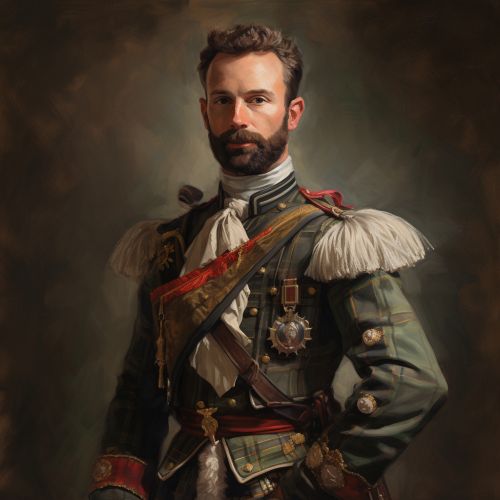Sir Walter Raleigh
Early Life
Sir Walter Raleigh was born to a Protestant family in Devon, the youngest of five sons. His father, Walter Raleigh Sr., was a farmer and his mother, Catherine Champernowne, was a niece of Katherine Ashley, Queen Elizabeth's governess. Raleigh's family was well connected in the Tudor court and his half-brother, Sir Humphrey Gilbert, was a favourite of Queen Elizabeth I.
Education
Raleigh attended Oriel College at the University of Oxford, though he left without obtaining a degree. He later studied law at the Middle Temple. His education played a crucial role in shaping his future, providing him with a solid foundation in the humanities and sciences.
Military Career
Raleigh's military career began in 1569 when he fought on the side of the Huguenots in the French Wars of Religion. He later served in the suppression of the Desmond Rebellions in Ireland, where he distinguished himself with his military prowess.


Exploration
Raleigh is perhaps best known for his role in the English exploration of the New World. He was granted a royal patent by Queen Elizabeth I in 1584 to explore and colonize lands not already claimed by a Christian monarch. This led to the establishment of the Roanoke and later the Jamestown colonies in what is now the United States.
Courtier and Patron of the Arts
In addition to his military and exploratory pursuits, Raleigh was also a prominent courtier. He was a favourite of Queen Elizabeth I, and was knighted by her in 1585. Raleigh was known for his wit and charm, and he used his influence at court to become a patron of the arts. He sponsored several writers, including Edmund Spenser, and was himself a published poet and author.
Downfall and Execution
Raleigh's fortunes changed with the death of Queen Elizabeth I and the ascension of King James I. Accused of treason, he was imprisoned in the Tower of London in 1603. He was released in 1616 to lead an expedition to find the mythical city of El Dorado, but the mission was a failure. Raleigh was re-arrested upon his return to England and executed in 1618.
Legacy
Raleigh's legacy is complex and multifaceted. He is remembered as a soldier, explorer, courtier, and writer. His efforts in establishing English colonies in the New World laid the groundwork for the future British Empire. His writings, particularly his poetry, have also had a lasting impact on English literature.
